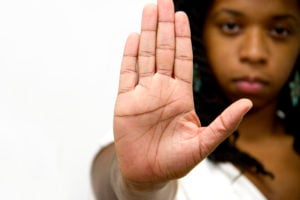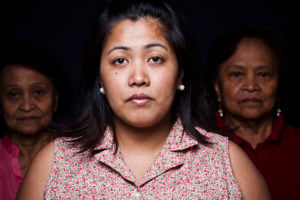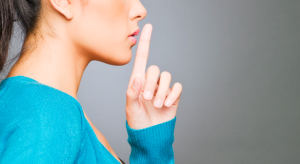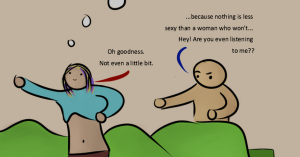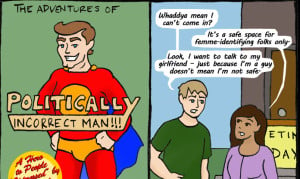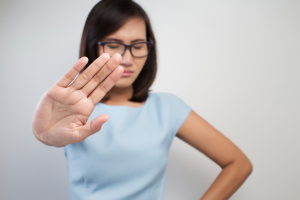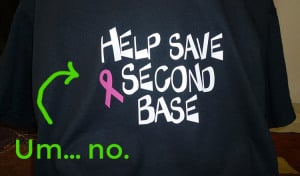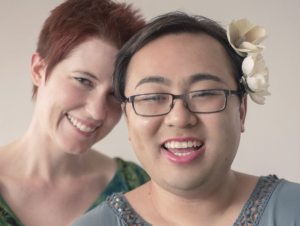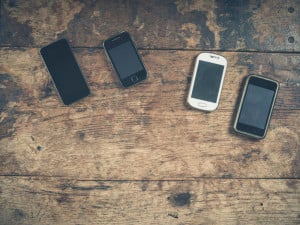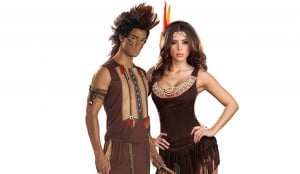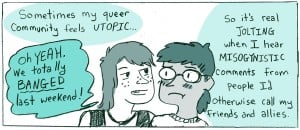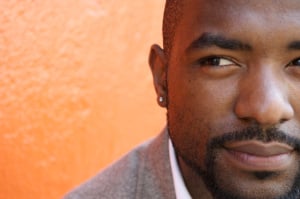
Source: Nancy Ney
“Unity is strength; division is weakness.” —Swahili proverb
Did I ever tell you about that time I had an Instagram face-off with a fellow Black Jamaican woman that turned into a multi-post, multi-comment thread that started with these hashtags: #antifeminism #whitegirlproblems?
Her original post — a poster of the word feminism, followed by a comment that started with the words “Never that” — continued with her explanation on why feminism was always “a White woman’s problem.”
Then she dropped this gem: Black men could never be feminists because historically, Black women were never oppressed by Black men, only revered by them.
We’ve probably all seen, and fully understand, the historical context and truth behind the origins of feminism and its longstanding and overt tendency to marginalize issues specific to women of color, especially Black women.
I hear that often, and I could’ve just directed her to Jarune Uwujaren’s perfectly conveyed piece about why some of us refuse to wrestle the term Feminism away from anyone.
I could’ve done that, rolled my eyes, and kept it moving. But, damn it, she ended her argument with a statement that left me grossly incapable of simply moving on:
“My man is my king, and he will be treated as such.
I’ll pass on a man who wants to be treated like a female.”
Here’s how my brain translated everything she said:
I’m on that all Black men are kings who treat all Black women like queens vibe, and any Black man who wants to focus on feelings and equality is gay. And gay is a White male issue that misguided Black men are now embracing, just like misguided Black women are embracing the feminism.
Do note that this is not a bash the Black man for not being there for the Black woman article. I stand with homegirl on the shared sense of pride and protection when it comes to our men. Where she and I differ is in the romanticized reality of relationships between Black men and Black women.
Shared race doesn’t automatically mean shared understanding.
As such, I’m writing here to express the sentiments of some Black women and girls aloud, with the intent to inform and empower Black men on how better to communicate with, and perhaps understand, some of the unique needs of Black girls and women.
Read on as I explore three urgent conversations between Black men and women that could significantly improve our relationships with each other.
1. We Need to Discuss the Notion That Black Men Don’t Get to Have Feelings
The idea that any man’s ability and willingness to feel things is synonymous with him wanting to be treated “like a female,” as my homegirl put it, is such an infringement on the right of a man’s ability to express himself authentically.
Feelings are not inherently feminine traits, nor are thinking and doing inherently masculine traits. It is our right and our privilege as living beings to explore and express our feelings, and it is contrary to our evolution to encourage our men to negate theirs.
If, for example, you’re a man who has witnessed a woman being mistreated by another man — maybe your mother being berated by your father — can you recall how it made you feel? Did you want to speak up, but didn’t for fear of your own safety, and maybe your mother’s as well?
Many boys and young men in the world have had that experience.
In that experience, they were taught — whether through direct order or unstated understanding — that they were not allowed to do anything about how they felt.
They could not speak to their fathers about what they saw, nor could they speak to their mothers about what she experienced. They move on and develop other ways to cope with unexpressed emotion. And those other ways are often reinforced by the pattern of emotional mismanagement with which the men around them have become quite versed.
What can a Black man do to have a different experience?
He can start having more conversations with the boys in his community about their right to feel. He can talk more openly among his friends about how something made him feel.
He can read to gain insight from other Black men working to change the realities of emotionally oppressed Black men.
Speaker and activist Kevin Powell offers some solutions in this detailed Huffington Post piece on Black men and health.
2. We Need to Discuss What Feminism Aims to Improve
A feminist is anybody who believes in and supports equal opportunities for women. Feminists aim to improve the quality of life for women by paying attention to and calling for change within the systems that put women and girls in danger or at a disadvantage.
Feminists look at daily choices and daily challenges to try and find better options.
So, that means, my husband’s choice to cook dinner most nights is an act of feminism. It is so because he sees that we are both working hard, and that I am not somehow designed to manage more tasks than he because I identify as a woman or because I chose to take on his surname when we got married.
He may not do this with the specific intention of being a feminist, but the way I see it is that anyone who makes lifestyle choices that take into account the specific needs of women is siding with feminist theory, whether they claim it or not.
What can a Black man do to be a better ally to his female partner?
Challenge yourself to explore your own sexist behaviors. Are you willing to look at the less obvious, but equally harmful forms of sexism? Are you deciding what your wife or girlfriend can and cannot wear because “you’re a man, and you know how men think?” If so, consider initiating more conversations with the boys and young men in your community about sexist behaviors.
Talk to your nephews, your sons, and your friends’ sons about how they approach girls and women. Tell them that “bitches” are fictional characters in songs and music videos, so they should not assume that the term is applicable to women in real life as a term of endearment or attraction.
3: We Need to Discuss the Perception of Feminism as a Threat to Black Unity
Standing in solidarity as a race doesn’t need to be done at the cost of silencing my voice as woman who has to content with both race and gender in America.
The same system that targets, oppresses, and endangers Black men offers the very same ills to Black women, along with the consequences of misogyny.
In America, the sentiment is that I should dress sexy, or cover up, depending on my religious affiliation.
I should always smile and try not to be a feminist killjoy or risk being viewed as one of one of those angry Black women.
I should be strong despite any and all obstacles and support the Black man no matter what because he needs me to help him fight this system, and I need him to protect me, and our family, from that same system.
Where do my needs, as part of the family, fit into those expectations? Will my man’s protection apply when I need to be protected from another Black man? Or a Black woman?
What of the Black woman who is blamed for putting her Black man in the system by way of an arrest, as a result of him hitting her at home? Is her right to physical safety secondary to her obligation to support the Black man?
What of a Black female college student’s feelings of imminent danger and deep vulnerability when she walks past a group of male students of various races (including Black) who tug at her arm, call her out for attempting to continue walking, and make her feel less like a queen and more like a steak about to get ravaged?
What of the Black women and children who suffer abuse behind the silent walls of their own homes because their men are respected leaders in their communities?
Who will speak on those women’s behalf when the man inflicting fear and harm into her life is Black like her?
Noted Black Nationalist and psychologist Dr. Umar Johnson is anti-feminist. In an online interview, he shared his view that the feminist movement came out of issues of oppression that White women were facing at the hands of White men.
He went on to echo the sentiment of my Instagram debate opponent:
“Black men have never been a position to oppress Black women except domestically, as it relates to abuse and violence.”
Are abuse and violence not relevant enough to warrant a movement toward a different experience? Is intimate partner violence an issue that operates independent of all other issues and has no effect on our families or communities?
Both Black men and women living in America are walking in varying hues of brown and black skin and wrestling with overt and covert racism. This doesn’t mean that I don’t seek partnership — and in some cases, leadership — from my community of Black men and women.
But it does mean that if I’m expected to defer to the Black man and let him be the guide and liaison between my oppression and my freedom, then I may as well defer to a White woman or a White man as well, because none of those, Black men or White people, can represent me better than I can represent myself.
What Can a Black Man Do to Change This Skewed Perspective?
Consider the perspective that when you label feminism as a White woman’s issue, you disregard the right of Black women to speak up about our own pain.
Remember that Black women were marked with the scars of this country’s history, too. Where you were expected to be physically strong and mentally compliant, we were expected to be strong, docile, and accommodating to all men, including our shared oppressors.
Now that we are outside that iteration of slavery, we must be careful not to claim that view of women as our own.
Focus less on how accommodating your woman needs to be, and more on how you can create real partnership that is reflective of your needs and hers.
It’s About Focus, Not Fault
Dr. Umar Johnson and my Insta-adversary almost got it right — because, be clear, I am saying that they are wrong — when they said that “Black men were never really the oppressors.”
It is not the Black man’s fault that the Black woman, in the hierarchy of job income, lands at the bottom following White men, White women, and Black men, in that order.
It is not the Black man’s fault that more Black women are raising children alone because her men are being targeted, murdered, and vilified by White, male, corporate, and political America.
So since we know these things are not your fault, can you stand by us as we battle these issues that are unique to us as Black women?
Can it be that feminism is for me, and not against you?
And if that’s possible, then I encourage you to join me in focusing on what can we do to support each other toward a better experience.
Together for sure. But on terms that make sense for us both.
[do_widget id=”text-101″]
Akilah S. Richards is a Contributing Writer for Everyday Feminism. She is a six-time author, digital content writer, and lifestyle coach who writes passionately about self-expression, womanhood, modern feminism, location independence and the unschooling lifestyle. Connect with Akilah on Instagram, Tumblr, or her #radicalselfie e-home, radicalselfie.com. Read her articles.
Search our 3000+ articles!
Read our articles about:
Our online racial justice training
Used by hundreds of universities, non-profits, and businesses.
Click to learn more





